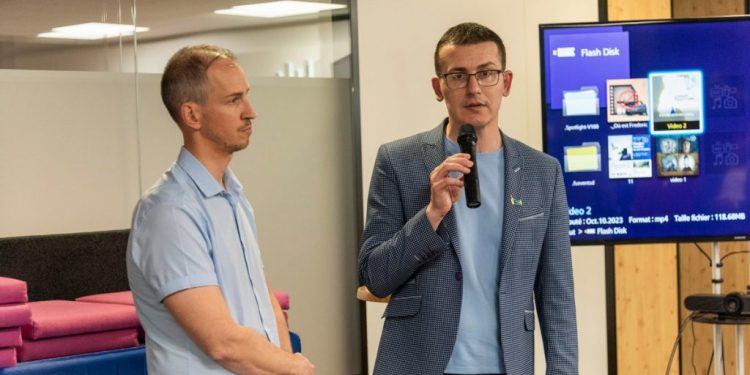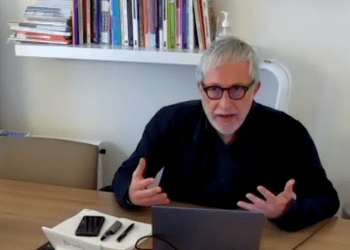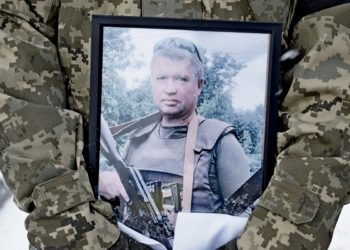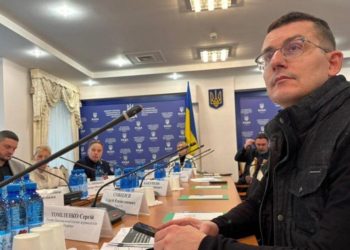The photo exhibition of the National Union of Journalists of Ukraine (NUJU) in Paris is a tribute to the killed and a call for the punishment of war criminals. Sergiy Tomilenko, the President of the NUJU, emphasized this while opening the exhibition Ukraine: Journalists in War Zones on October 11.
Here is the full text of the speech:
“Dear friends, today is the 695th day of the full-scale invasion of Ukraine, when russia launched a major war in the center of Europe,” Sergiy Tomilenko said. “Today, it is making efforts to erase mentions of this war from the pages of the media and to switch people’s attention to other issues.
During the full-scale war, more than 70 journalists were killed. These were both civilian victims of aggression, and journalists-warriors mobilized into the Ukrainian army. Sixteen journalists died while performing their professional duties. Our exhibition is a tribute to the victims and, at the same time, a call to punish russia for war crimes against journalists and the media.
At war, journalists resolutely work in extraordinary conditions. In the past few months alone, there have been three attacks on journalists’ cars at the front. And only a week ago, a russian missile was purposefully launched at Kharkiv, at the hotel where international journalists and representatives of international missions were staying.
Among the works that we present at the exhibition today is a photograph from Mariupol, where the russians attacked the maternity hospital. This work won the World Press Photo, and its author – Yevhen Maloletka – won the Pulitzer Prize together with his colleagues.
Some of the pictures show the work of the National Union of Journalists of Ukraine on the safety of journalists. One of the last pictures is from the extensive training we held in Zaporizhzhia. Not far from this city, the russians occupied and mined a nuclear power plant, so, unfortunately, there is a significant risk of a nuclear disaster.
We, the Union of Journalists, make great efforts to protect our colleagues. Another important priority of ours is the support of local media in the de-occupied and front-line territories. There, local newspapers are often the only source of information. Thanks to the support of international partners, the publishing of 29 local newspapers has been resumed today.
Our network of Journalists’ Solidarity Centers and a hotline operate thanks to the strong support of the International and European Federations of Journalists, the headquarters of UNESCO. The network provides support to journalists who have suffered from russian aggression or work in dangerous conditions.”
NUJU Information Service

 THE NATIONAL UNION OF
JOURNALISTS OF UKRAINE
THE NATIONAL UNION OF
JOURNALISTS OF UKRAINE
















Discussion about this post